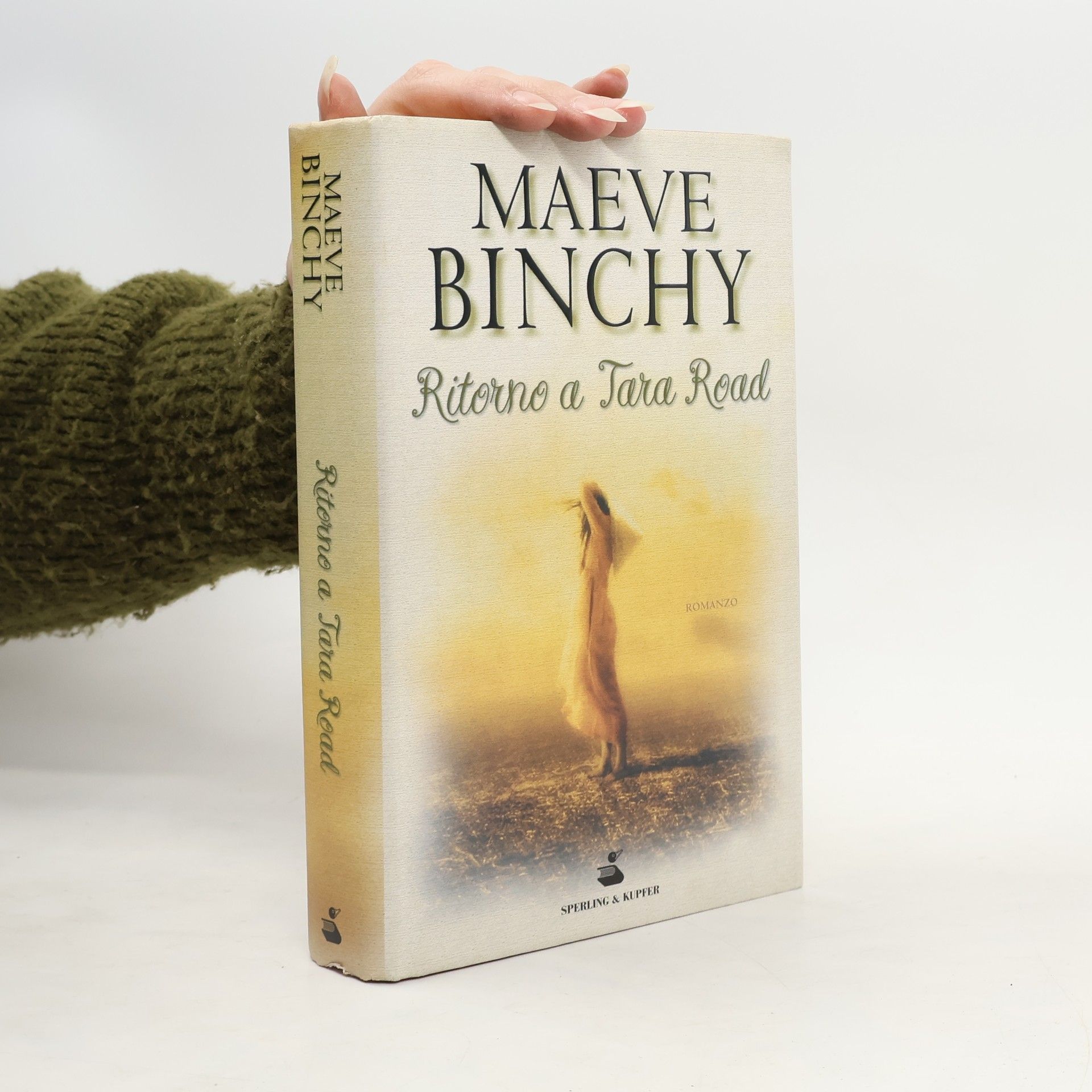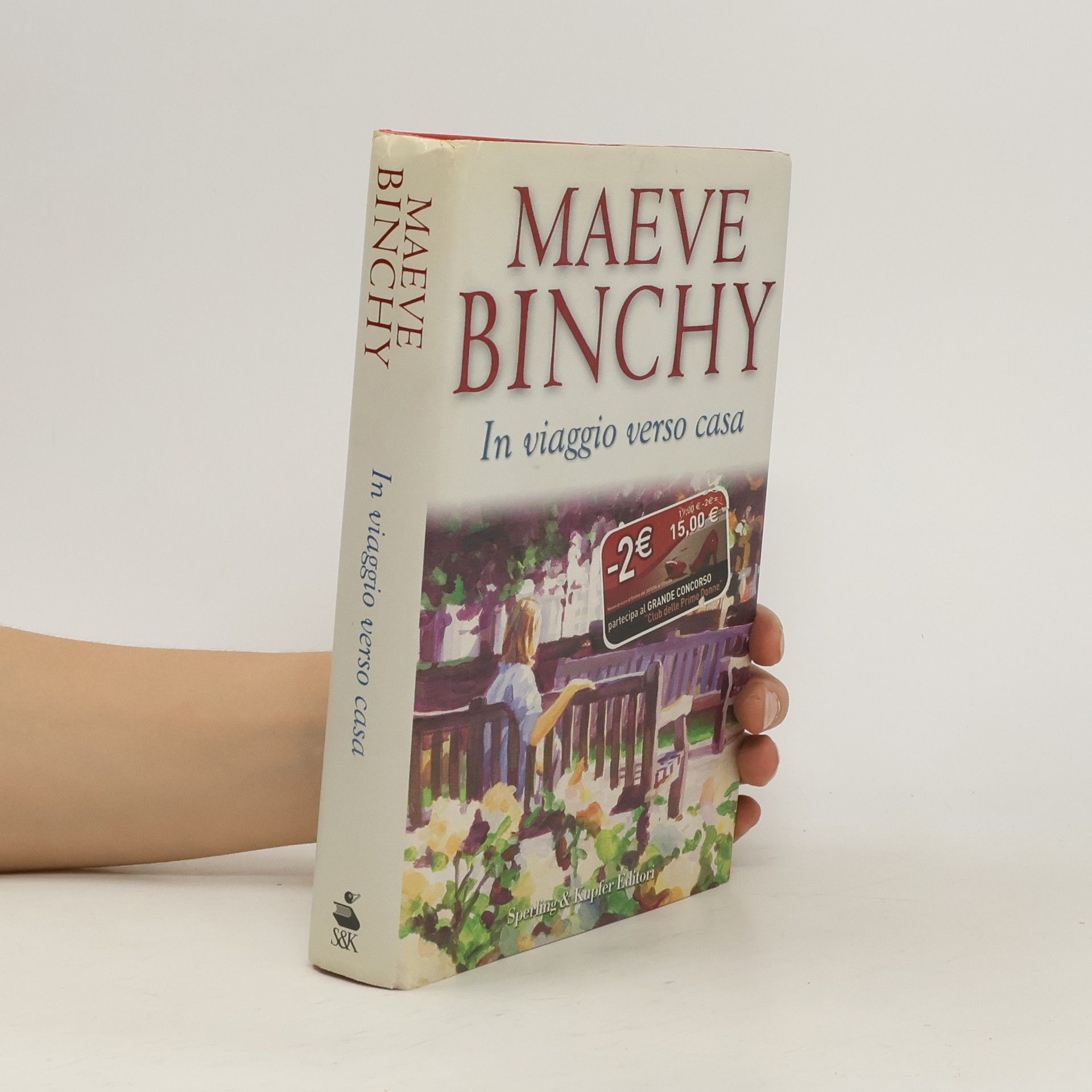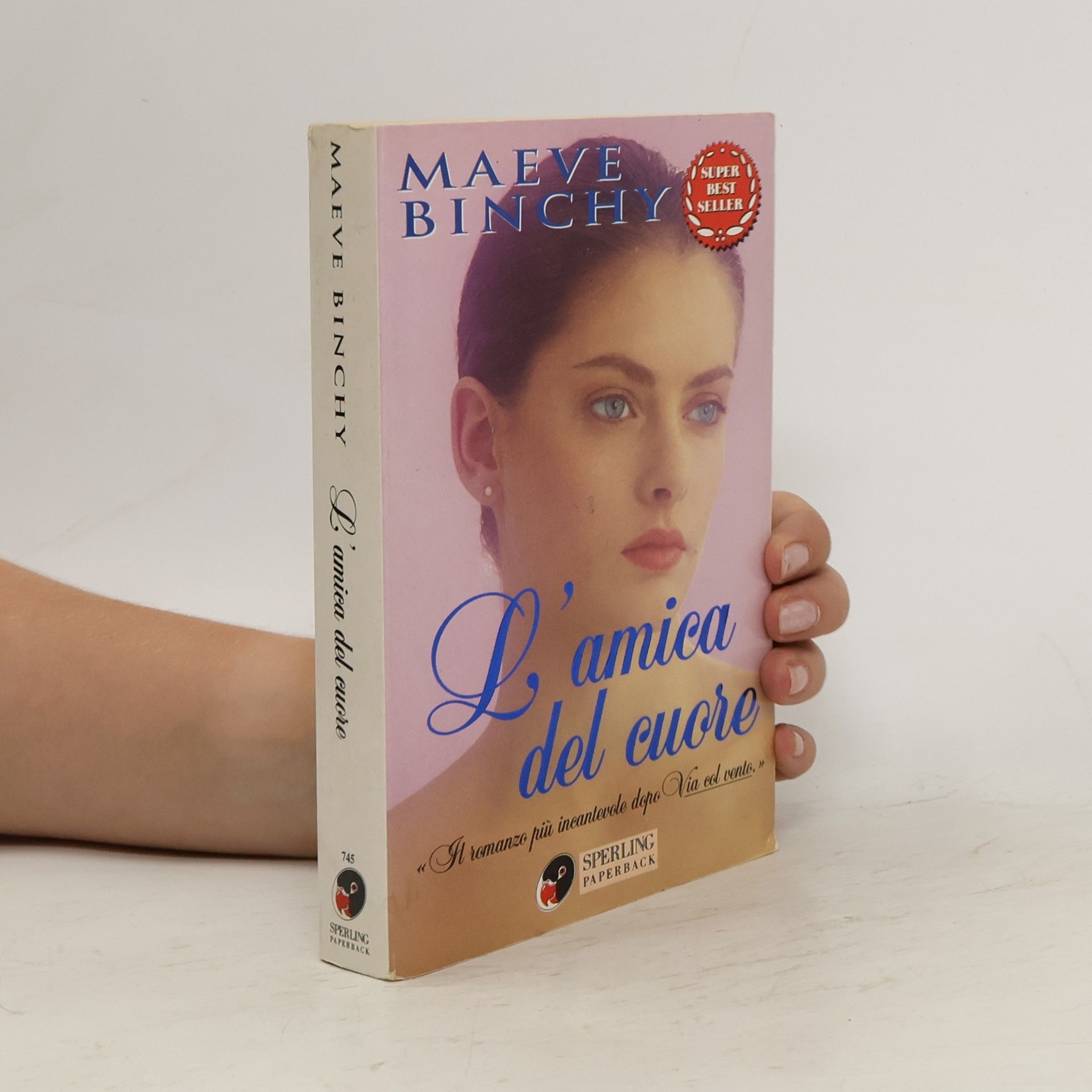L'amica del cuore
- 497pagine
- 18 ore di lettura
Maeve Binchy è stata un'autrice irlandese i cui romanzi si svolgevano spesso in Irlanda, concentrandosi su temi di amore, famiglia e relazioni. I suoi personaggi erano individui in cui i lettori potevano facilmente identificarsi, e le loro storie esploravano le complessità dell'emozione e dell'esperienza umana. Binchy era nota per il suo stile di scrittura caldo ed empatico, capace sia di intrattenere che di commuovere i suoi lettori. Le sue opere offrivano profonde intuizioni sulla società irlandese e sulla condizione umana.







La storia romantica e avvincente di un'amicizia fra tre ragazze - Eve, Nan e Benny - catapultate nell'avventura della vita, tra imprevisti, colpi di scena e segreti brucianti. Da una tranquilla cittadina di provincia alla frenetica vitalità della Dublino degli anni Cinquanta, le amiche attraverseranno esperienze entusiasmanti e dolorose, che metteranno a dura prova il loro legame. E, come spesso accade, sarà un uomo a scatenare la contesa più aspra, quella capace di minare anche i sentimenti più sinceri e tenaci.
Stories of a few of the millions of people who travel on London's tube every day provide a cross-section of London life.
Quando accetta il difficile incarico di dirigere il centro di cardiologia del St Brigid's Hospital di Dublino, Clara Casey, un'autorevole cardiologa, donna elegante e raffinata, sta attraversando una profonda crisi personale. Quello che Clara ancora non sa è che il suo nuovo, impegnativo lavoro le cambierà la vita: le persone straordinarie che mettono cuore e anima nell'ambizioso progetto della clinica, infatti, le permetteranno di ritrovare il cammino verso la felicità. E questo vale non soltanto per lei... Infatti per Ania, una dolce e intraprendente ragazza polacca, l'incontro con Clara Casey è un piccolo miracolo: non aveva pensato di lasciare per sempre la sua patria, ma forse ricominciare tutto da capo le aggiustetà il cuore infranto. Anche Declan, un giovane medico dall'animo gentile, non vede l'ora di iniziare la sua collaborazione alla clinica, ma quello che sarebbe dovuto essere un impiego provvisorio gli porterà molto più di quanto si aspettasse. Perché incontra la bellissima Fiona, infermiera sensibile e amatissima, che non è ancora riuscita a lasciarsi alle spalle un passato tormentato... Con Le regole del cuore, Maeve Binchy ci regala una storia in cui dramma, conflitto e relazioni tumultuose si intrecciano all'entusiasmo, all'umorismo e all'empatia che l'hanno resa una delle scrittrici più amate in tutto il mondo.
Two women--one American, the other Irish-- trade houses for the summer and the resulting change of scenery helps them remake their lives. The American is Marilyn of Connecticut, mourning the death of her son, the Irish woman is Ria of Dublin, a mother of two, whose husband had an affair and made the woman pregnant. By the author of The Glass Lake.
EVENING CLASS The Italian evening class at Mountainview School is like hundreds of others all over Dublin. But this class has its own special quality - as the focus for the varied hopes and dreams of teacher and pupils alike. By the time the pupils set off on a grand trip to Italy, a surprising number of them have found more than the Italian language in the evening class. THE COPPER BEECH Shancarrig School stands in the shade of a glorious old copper beech whose colours tell the passing of the seasons and the years: a tree that has watched over many young lives. Here is a delightful story of the lives, loves and dreams of the people who pass below its branches. TARA ROAD Ria and Marilyn have never met - they live thousands of miles apart, one in Tara Road, Dublin, the other in New England. When each needs a place to escape to, a house exchange seems an ideal solution. Along with the borrowed houses come gossip and speculation, and friendship, as Ria and Marilyn swap lives for the summer...
Dublin 4: A society hostess invites her husband’s mistress to dinner. A country girl savours the delights of city life. A student faces the dilemma of unmarried pregnancy. A drink-ridden photographer tries to relaunch a shattered career. Dublin 4 has all of Maeve Binchy’s intimate grasp of human feelings, her marvellous ear for dialogue and her subtle sense of life’s confusion. The stories bubble with fun and wit — yet sometimes leave a taste of sadness. Victoria Line Central Every day, millions of people travel on London’s Underground, yet everyday life is not nearly as mundane as we think. At Notting Hill, the secretary, harbouring her secrets travels to work; at Highbury and Islington, Adam has a sudden change of heart; at Holborn, a disastrous reunion is about to take place. With her characteristic mix of humour and biting realism, Maeve Binchy enters the lives of ordinary people. The Lilac Bus is a collection of interrelated short stories by the writer Maeve Binchy, first published in 1984. The stories were later republished, along with the earlier collection Dublin 4, in The Lilac Stories.